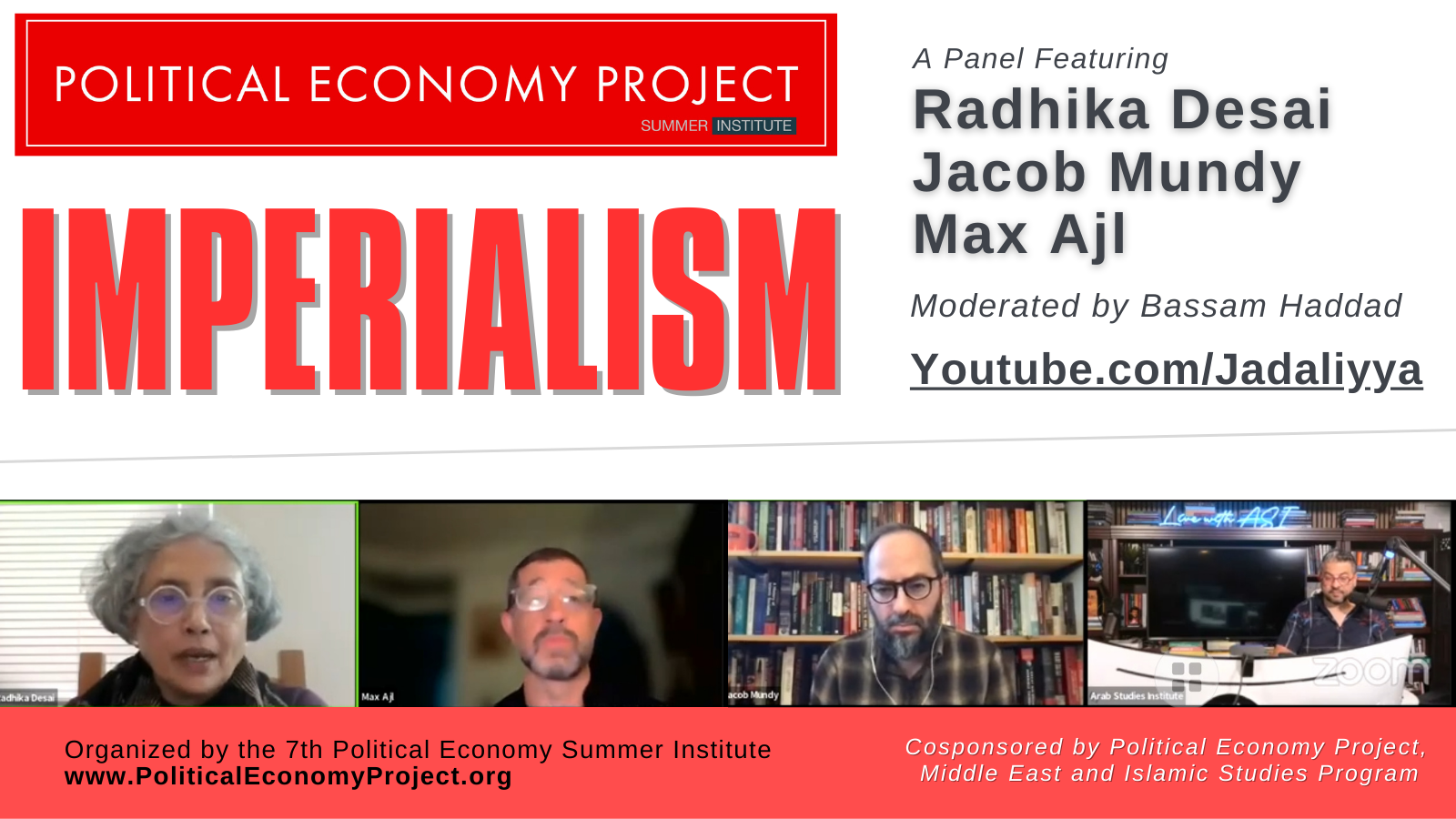Political Economy Summer Institute
Imperialism
A Panel Featuring Radhika Desai, Jacob Mundy, Max Ajl
Saturday, 3 June 2023
3:00 PM EST
Cosponsored by Political Economy Project, Middle East and Islamic Studies (GMU)
The practice and theory of imperialism has re-emerged as an urgent debate amidst the conflict in Eastern Europe. Yet, debates about imperialism and the practice of imperialism are nothing if not long-standing, tracing back to the classical works of Lenin, African and Asian theories of neo-colonialism and semi-colonialism, Latin American theories of dependency, and Arab theories of accumulation on a world-scale and de-dedevelopment. This panel examines the debate, situating it in recent world history.
Featuring
Dr. Radhika Desai is Professor at the Department of Political Studies, and Director, Geopolitical Economy Research Group, University of Manitoba, Winnipeg, Canada. She is the author of Geopolitical Economy: After US Hegemony, Globalization and Empire (2013), Slouching Towards Ayodhya: From Congress to Hindutva in Indian Politics (2nd rev ed, 2004) and Intellectuals and Socialism: ‘Social Democrats’ and the Labour Party (1994), a New Statesman and Society Book of the Month, and editor or co-editor of Russia, Ukraine and Contemporary Imperialism, a special issue of International Critical Thought (2016), Theoretical Engagements in Geopolitical Economy(2015), Analytical Gains from Geopolitical Economy (2015), Revitalizing Marxist Theory for Today’s Capitalism (2010) and Developmental and Cultural Nationalisms (2009).
Jacob Mundy is Assistant Professor of Peace and Conflict Studies at Colgate University. He is the author of Imaginative Geographies of Algerian Violence: Conflict Science, Conflict Management, Antipolitics (Stanford, 2015); the co-author (with Stephen Zunes) of Western Sahara: War, Nationalism, and Conflict Irresolution (Syracuse, 2010); and the co-editor (with Daniel B. Monk) of The Post-conflict Environment: Investigation and Critique(Michigan, 2014).
Max Ajl is a postdoctoral fellow at the Rural Sociology Group at Wageningen University and an associated researcher at the Tunisian Observatory for Food Sovereignty and the Environment. He is an associate editor at Agrarian South and Journal of Labor and Society, and has written for The Journal of Peasant Studies and the Review of African Political Economy. His book, A People’s Green New Deal, was published in 2021 with Pluto Press.
